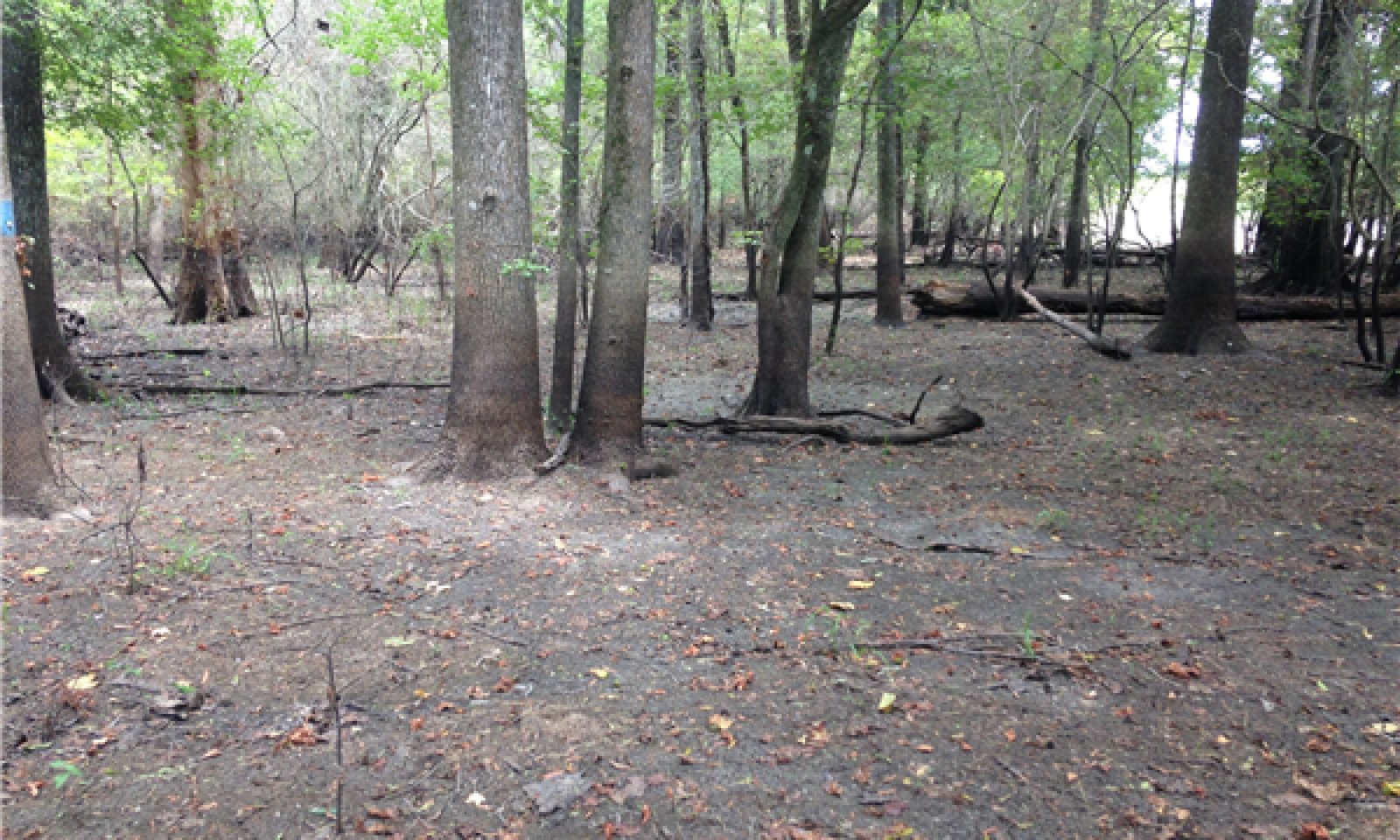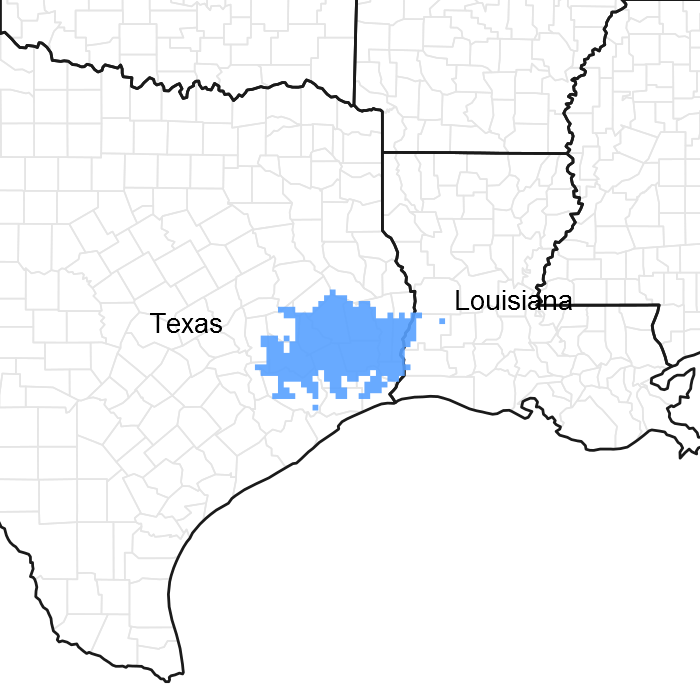

Natural Resources
Conservation Service
Ecological site F152BY014TX
Poorly Drained Clayey Bottomland
Last updated: 9/22/2023
Accessed: 02/27/2026
General information
Provisional. A provisional ecological site description has undergone quality control and quality assurance review. It contains a working state and transition model and enough information to identify the ecological site.

Figure 1. Mapped extent
Areas shown in blue indicate the maximum mapped extent of this ecological site. Other ecological sites likely occur within the highlighted areas. It is also possible for this ecological site to occur outside of highlighted areas if detailed soil survey has not been completed or recently updated.
MLRA notes
Major Land Resource Area (MLRA): 152B–Western Gulf Coast Flatwoods
Major Land Resource Area (MLRA) 152B, Western Gulf Coast Flatwoods, is in eastern Texas and western Louisiana. Locally termed the Flatwoods, the area is dominated by coniferous forest covering 5,681 square miles (14,714 square kilometers). The region is a hugely diverse transition zone between the northern and eastern mixed forests and southern and western coastal prairies and grasslands.
Classification relationships
Major Land Resource Area (MLRA) (USDA-Natural Resources Conservation Service, 2006)
Ecological site concept
The Poorly Drained Clayey Bottomland ecological site has very deep, somewhat poorly drained soils that are flooded occasionally to frequently. The site is typically flooded for long periods during normal rainfall years. They will stay flooded starting in November and ending in May. The clay-textured soils combined with the flooding frequency form the plant community.
Associated sites
| F152BY004TX |
Clayey Flat Soils are clayey throughout and on a higher landform. |
|---|---|
| F152BY005TX |
Seasonally Wet Loamy Upland Soils are loamy and on a higher landform. |
| F152BY006TX |
Well Drained Loamy Upland Soils are well drained, loamy, and on a higher landform. |
| F152BY007TX |
Poorly Drained Loamy Upland Soils are on a higher landform. |
| F152BY012TX |
Well Drained Bottomland Soils are better drained. |
| F152BY013TX |
Poorly Drained Loamy Bottomland Soils are loamy throughout. |
| F152BY011TX |
Swamp Soils are in a lower depressional landform that remains ponded after flood events. |
Similar sites
| F152BY012TX |
Well Drained Bottomland Soils are better drained. |
|---|---|
| F152BY004TX |
Clayey Flat Soils are on a higher landform and not flooded for extended periods. |
| F152BY011TX |
Swamp Soils are semi-permanently ponded. |
| F152BY013TX |
Poorly Drained Loamy Bottomland Soils are loamy throughout. |
Table 1. Dominant plant species
| Tree |
(1) Quercus nigra |
|---|---|
| Shrub |
Not specified |
| Herbaceous |
(1) Carex |
Click on box and path labels to scroll to the respective text.
Ecosystem states
| T1A | - | Introduction of Chinese tallow and/or other non-native species |
|---|---|---|
| T1B | - | harvest by clearcut and planted to a monoculture of hardwood trees |
| R2A | - | Mechanical and/or chemical control of Chinese tallow and/or other non-natives |
| T2A | - | harvest by clearcut and planted to a monoculture of hardwoods |
| R3A | - | Selective harvest coupled with the reintroduction of native species |
